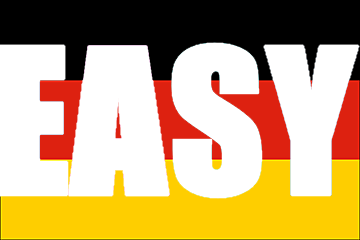| ICFCY-Code | Title | Description |
|
|
b1
|
CHAPTER 1 MENTAL FUNCTIONS |
This chapter is about the functions of the brain: both global mental functions, such as consciousness, energy and drive, and specific mental functions, such as memory, language and calculation mental functions. |

|
b1441
|
Long-term memory |
Mental functions that produce a memory system permitting the long-term storage of information from short-term memory and both autobiographical memory for past events and semantic memory for language and facts. |

|
b167
|
Mental functions of language |
Specific mental functions of recognizing and using signs, symbols and other components of a language. |

|
b1670
|
Reception of language |
Specific mental functions of decoding messages in spoken, written or other forms, such as sign language, to obtain their meaning. |

|
b16700
|
Reception of spoken language |
Mental functions of decoding spoken messages to obtain their meaning. |

|
b16701
|
Reception of written language |
Mental functions of decoding written messages to obtain their meaning. |

|
b16702
|
Reception of sign language |
Mental functions of decoding messages in languages that use signs made by hands and other movements, in order to obtain their meaning. |

|
b16703
|
Reception of gestural language |
Mental functions of decoding messages in non-formalized gestures made by hands and other movements in order to obtain their meaning. |

|
b16708
|
Reception of language, other specified |
|

|
b16709
|
Reception of language, unspecified |
|

|
b1671
|
Expression of language |
Specific mental functions necessary to produce meaningful messages in spoken, written, signed or other forms of language. |

|
b16710
|
Expression of spoken language |
Mental functions necessary to produce meaningful spoken messages. |

|
b16711
|
Expression of written language |
Mental functions necessary to produce meaningful written messages. |

|
b16712
|
Expression of sign language |
Mental functions necessary to produce meaningful messages in languages that use signs made by hands and other movements. |

|
b16713
|
Expression of gestural language |
Mental functions necessary to produce messages in non-formalized gestures made by hands and other movements. |

|
b16718
|
Expression of language, other specified |
|

|
b16719
|
Expression of language, unspecified |
|

|
b1672
|
Integrative language functions |
Mental functions that organize semantic and symbolic meaning, grammatical structure and ideas for the production of messages in spoken, written or other forms of language. |

|
b1678
|
Mental functions of language, other specified |
|

|
b1679
|
Mental functions of language, unspecified |
|

|
b2304
|
Speech discrimination |
Sensory functions relating to determining spoken language and distinguishing it from other sounds. |

|
d133
|
Acquiring language |
Developing the competence to represent persons, objects, events and feelings through words, symbols, phrases and sentences. |

|
d1338
|
Acquiring language, other specified |
|

|
d1339
|
Acquiring language, unspecified |
|

|
d134
|
Acquiring additional language |
Developing the competence to represent persons, objects, events, feelings through words, symbols, phrases and sentences, such as in an additional language or signing. |

|
d166
|
Reading |
Performing activities involved in the comprehension and interpretation of written language (e.g. books, instructions, newspapers in text or Braille), for the purpose of obtaining general knowledge or specific information. |

|
d1661
|
Comprehending written language |
Grasping the nature and meaning of written language in reading aloud or in silence. |

|
d170
|
Writing |
Using or producing symbols or language to convey information, such as producing a written record of events or ideas or drafting a letter. |
|
|
d3
|
CHAPTER 3 COMMUNICATION |
This chapter is about general and specific features of communicating by language, signs and symbols, including receiving and producing messages, carrying on conversations, and using communication devices and techniques. |

|
d310
|
Communicating with - receiving - spoken messages |
Comprehending literal and implied meanings of messages in spoken language, such as understanding that a statement asserts a fact or is an idiomatic expression, such as responding and comprehending spoken messages. |

|
d3150
|
Communicating with - receiving - body gestures |
Comprehending the meaning conveyed by facial expressions, hand movements or signs, body postures, and other forms of body language. |

|
d320
|
Communicating with - receiving - formal sign language messages |
Receiving and comprehending messages in formal sign language with literal and implied meaning. |

|
d325
|
Communicating with - receiving - written messages |
Comprehending the literal and implied meanings of messages that are conveyed through written language (including Braille), such as following political events in the daily newspaper or understanding the intent of religious scripture. |

|
d330
|
Speaking |
Producing words, phrases and longer passages in spoken messages with literal and implied meaning, such as expressing a fact or telling a story in oral language. |

|
d3350
|
Producing body language |
Conveying messages by intentional movements of the body, such as facial gestures (e.g. smiling, frowning, wincing), by arm and hand movements, and by postures (e.g. embracing to indicate affection or pointing to receive attention or an object). |

|
d340
|
Producing messages in formal sign language |
Conveying, with formal sign language, literal and implied meaning. |

|
d345
|
Writing messages |
Producing the literal and implied meanings of messages that are conveyed through written language, such as writing a letter to a friend. |

|
d350
|
Conversation |
Starting, sustaining and ending an interchange of thoughts and ideas, carried out by means of spoken, written, sign or other forms of language, with one or more persons one knows or who are strangers, in formal or casual settings. |

|
d355
|
Discussion |
Starting, sustaining and ending an examination of a matter, with arguments for or against, or debate carried out by means of spoken, written, sign or other forms of language, with one or more people one knows or who are strangers, in formal or casual settings. |

|
d815
|
Preschool education |
Learning at an initial level of organized instruction in the home or in the community designed primarily to introduce a child to a school-type environment and prepare the child for compulsory education, such as by acquiring skills in a day-care or similar setting in preparation for school (e.g. educational services provided in the home or in community settings designed to promote health and cognitive, motor, language and social development and readiness skills for formal education). |






 =Select (and add) this code
=Select (and add) this code  Click on a code to expand the branch
Click on a code to expand the branch 














































